AFRORACK is making modular synthesis accessible to underprivileged kids
This synthesis education initiative is empowering young people of colour in the world of electronic music and sound design
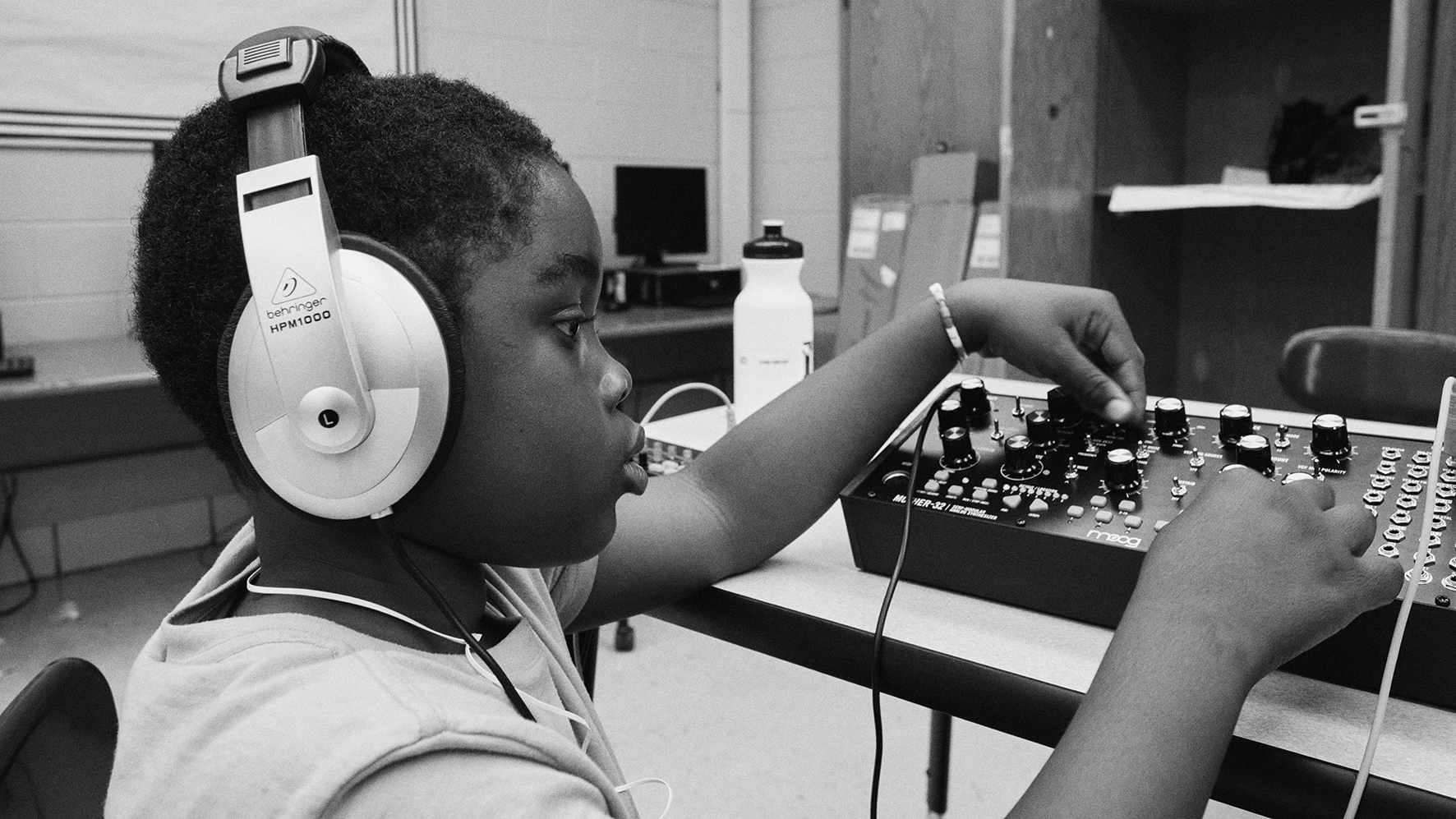
Modular synthesis, particularly Eurorack, is often considered among the more esoteric areas of music technology: even seasoned synthesists can be rendered tentative on account of its perceived complexity and fiddliness— and not least its expense.
It might not, therefore, be the first thing that springs to mind when it comes to the subject of entry-level electronic music workshops for children and young adults; least of all when it comes to how early experiences in electronic music can build fundamental confidence and open pathways into other industries.
Aaron Guice, founder of AFRORACK, has other ideas. A flourishing synthesis education initiative focused on educating and empowering young people of colour in the world of electronic music and sound design, AFRORACK represents a crucial voice, both in the modular synthesis community and the electronic music landscape at large.
Not only is it a clear demonstration of the fact that synthesis is for everyone— no matter their age, background, musical experience or ethnicity— it also facilitates an excellent entry point for those young people into both the music and audio engineering industries, and the wider realm of STEM - fields based in science, technology, engineering and mathematics.
I’m sitting with Guice in a central London cafe, a little under a week into Black History Month. Having started AFRORACK in his native Chicago, he is visiting the UK to further the work of a new branch of the organisation, AFRORACK London.
I see myself as a facilitator between the two worlds, between electronic music manufacturers and the Black community
An AFRORACK workshop will ordinarily consist of an array of electronic instruments, typically semi-modular synthesisers like the Moog Mother-32 and DFAM, laid out for participants to explore freely and create with, guided by tutors. A large part of the process, explains Guice, is encouraging young people to confidently explore without fear of doing something wrong. In the past, he has even picked up instruments and dropped them on the table to illustrate the point; that these instruments are beholden to their users and not the other way around.
“It's theirs, and I let them know that it's theirs. From the beginning. It's not like they're borrowing it. It's not like they can only look at it— it’s theirs! I see myself as a facilitator between the two worlds, between electronic music manufacturers and the Black community.”
Get the MusicRadar Newsletter
Want all the hottest music and gear news, reviews, deals, features and more, direct to your inbox? Sign up here.
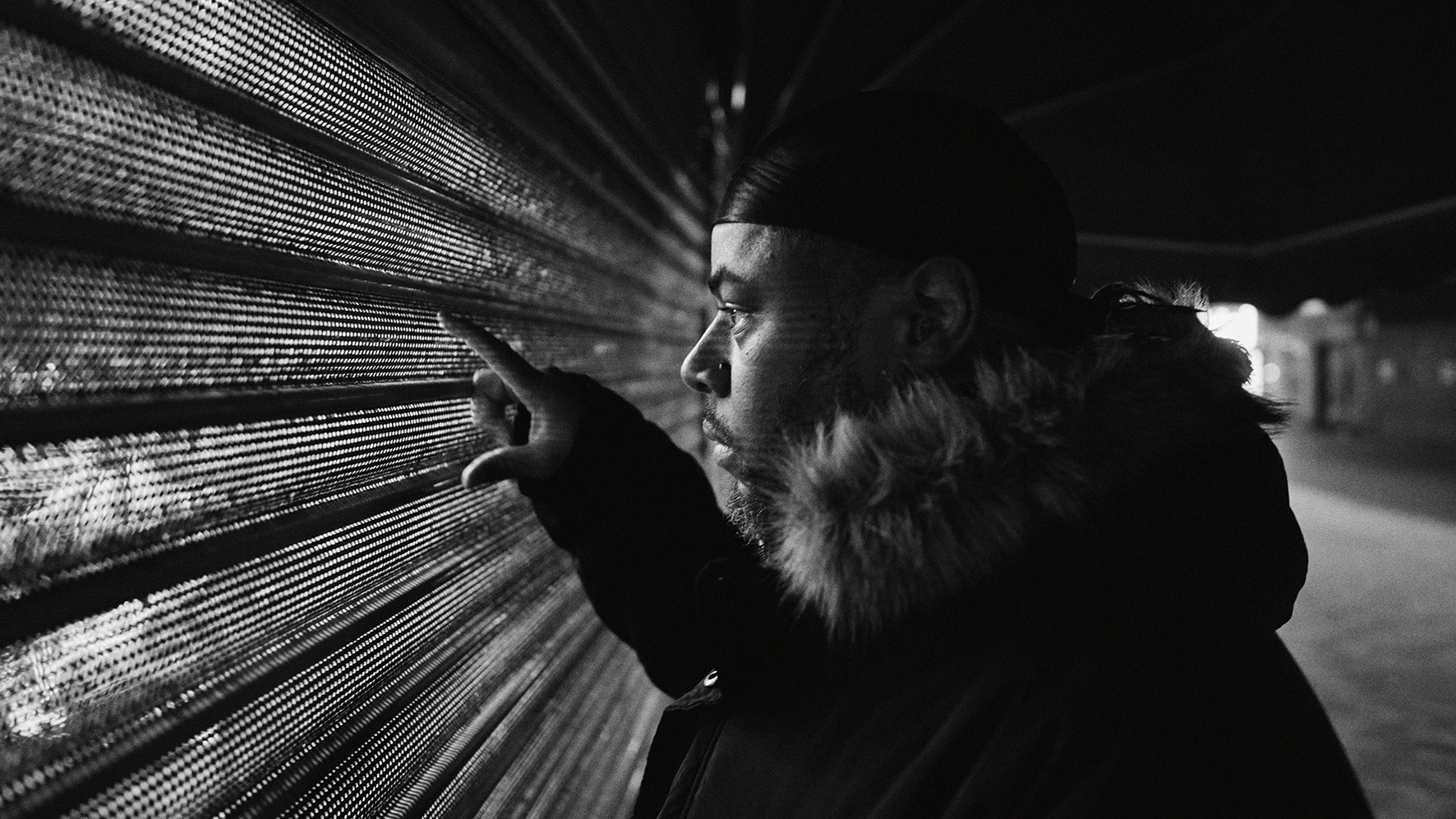
A sound designer by trade, Guice received his first career break after being invited by a friend to work as a boom operator on a Pepsi commercial in LA. It was here that he met director Paul Hunter, also responsible for the groundbreaking Nike Freestyle commercial that Guice still cites as a key inspiration.
Guice soon began to work for Hunter, continuing to do so for the next decade. Did the fact that Hunter, a Black director, inspired and empowered the young Guice to beat a path through an overwhelmingly white industry play a part in Guice’s desire to empower young people of colour himself?
“That's a great question,” reflects Guice. “But, I know for a fact that my drive for AFRORACK actually comes more from my relationship with my dad.
“I’m in LA, we're about 10 years into it. And my mom calls me and tells me that my dad is ill. So I move back to Chicago and become a caregiver for my dad, who had Alzheimer’s. My first interaction with modular actually came during that time, using it with him. I didn't have anything in Chicago. So I was like, ‘Okay, I need to find a music store!' I went in to look at regular synths and things like that, but they had this huge room with a big modular case. That was the first time I'd seen Eurorack modules," Guice continues.
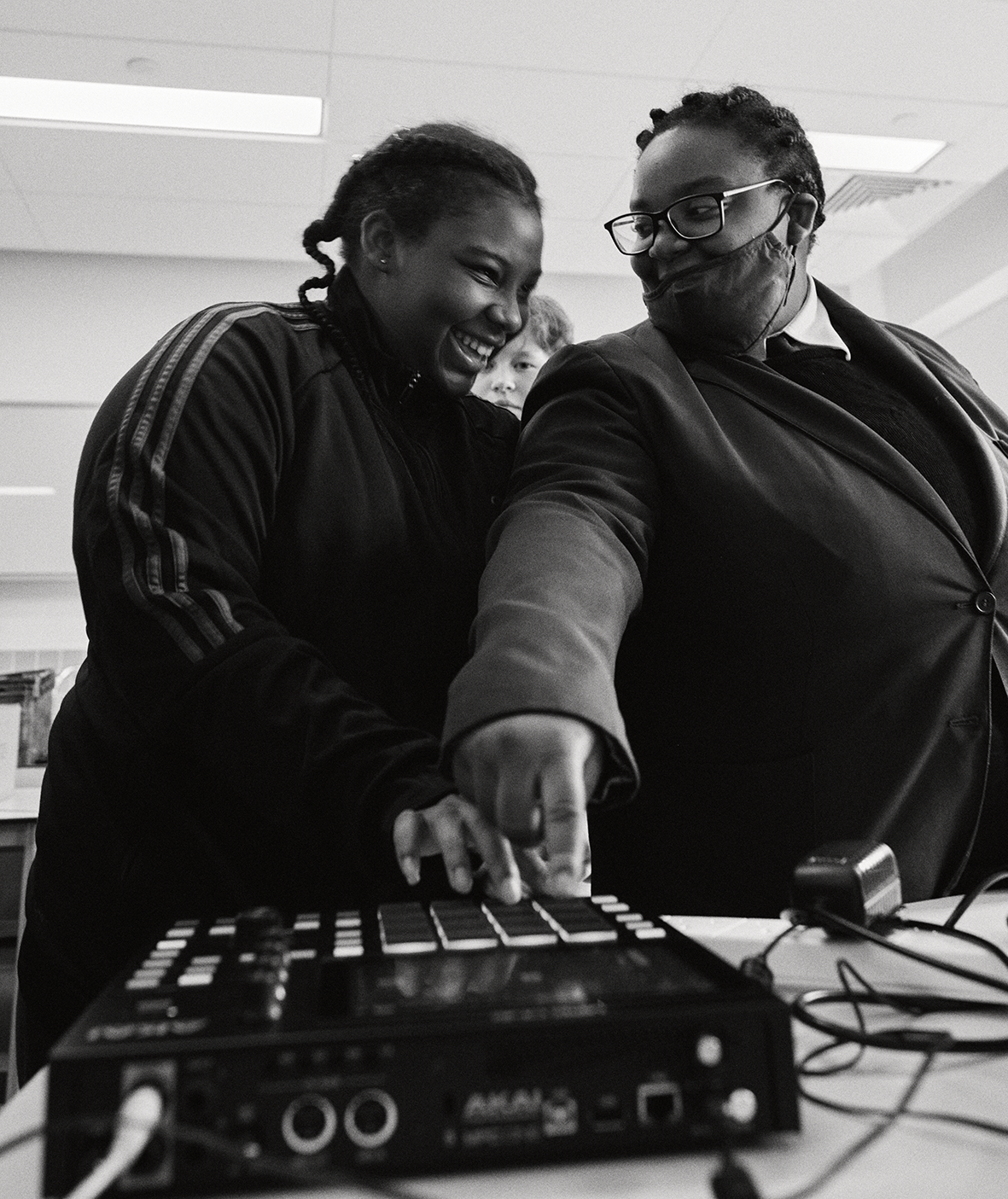
“Modular is magical like that; the possibility of reconnecting, or maybe even repairing connections. When I was working with my dad, it was very much based around connections. Re-establishing connections. Not only socially, cognitively, but the connection between a father and a son. Because I'd been away for so long, and coming back he was so different. I took that experience, and transformed it into AFRORACK.”
Modular is magical like that; the possibility of reconnecting, or maybe even repairing connections
Setting up AFRORACK London, Guice explains, required adaptability. “I've been coming here for about a year now,” he says. “The thing about AFRORACK that it should take the shape of the communities that it serves. You have to be very mindful of that. And that starts with a lot of listening. As we've been doing more and more workshops here, more and more programming, it's changing and becoming more London-specific. And that’s important, because you don't want to inadvertently import American trauma to the kids here.”
It’s an excellent observation. “I think the biggest difference between the kids here and the kids in the States is that a lot of the kids here know more about their identity,” Guice continues. “They might know where their parents came from; whereas most of the children in the United States don’t know that. The way slavery sort of mixed everything up, no one really knows who they are. Identity is a huge part of our internal dialogue. So having these conversations helps to inspire positive connections with who they are.”
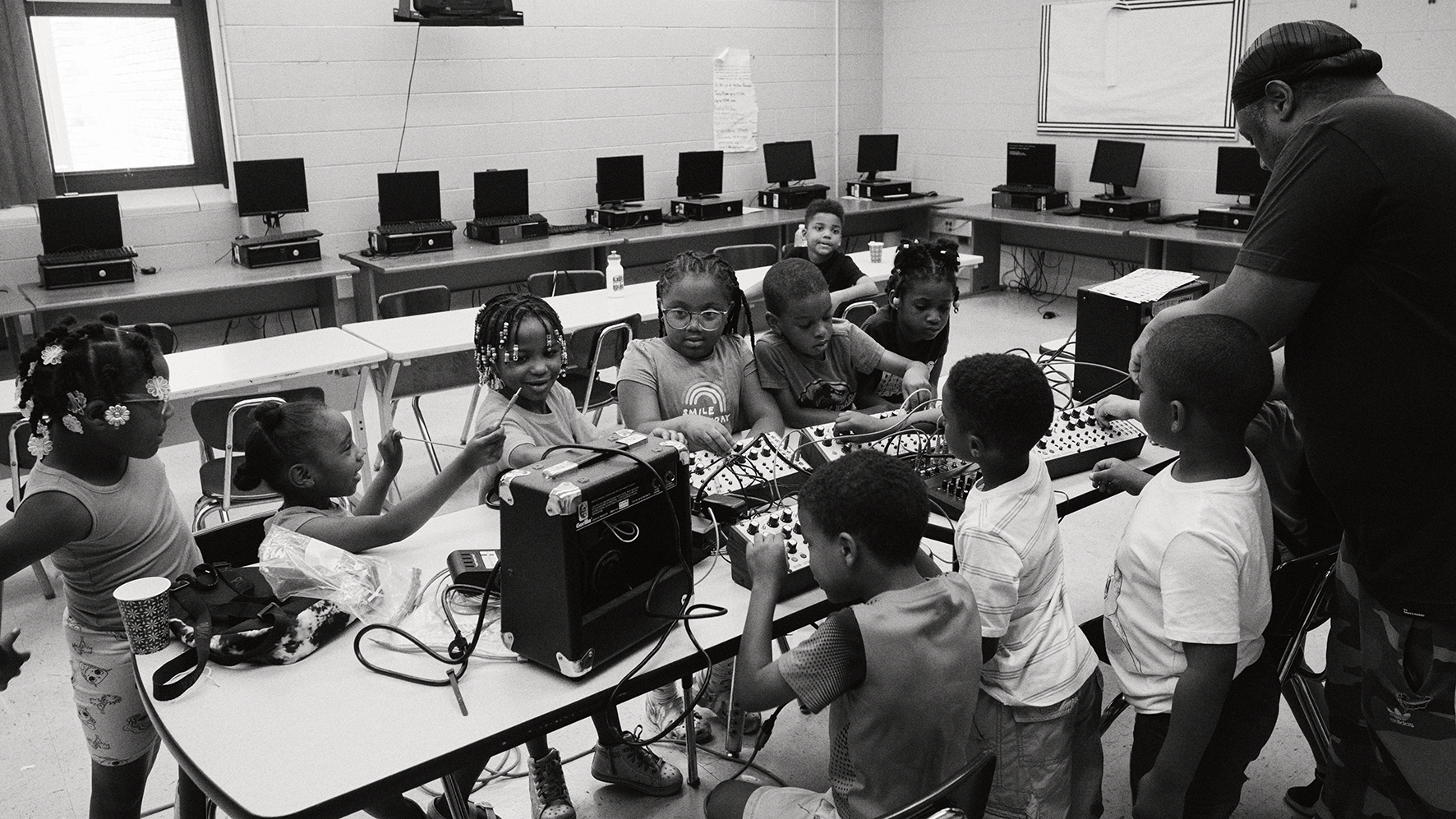
AFRORACK does not simply exist to produce synthesists, of course, but to facilitate new modes of thinking. “Discover the truth and power of your imagination,” reads AFRORACK's mission statement. “Investigate and become absorbed in a "state of connectivity" that expands forward thinking and inspires problem-solving. Generate a space—a whole new universe of possibilities.”
These, I suggest, are not simply musical or even artistic principles, but fundamental lessons for young people when it comes to developing a sense of ambition and unlocking creativity in any sphere. “Right. We have to be responsible for our own communities," Guice tells us. ”The way that we do that is by creating stronger, healthier and more mindful participants. And that starts with the kids.
“We have a saying: ‘think modular’. As we start to break down those limiting beliefs, as we start to ‘think modular’, all of a sudden everything can be folded, either which way. Everything is possible and anything is possible. It’s access, man. It all starts with the access. It's a really simple gesture that leads to all these other things. And I truly believe that STEM-related fields will make economic mobility possible for these kids.”
Find out more about AFRORACK or support their work on their website.
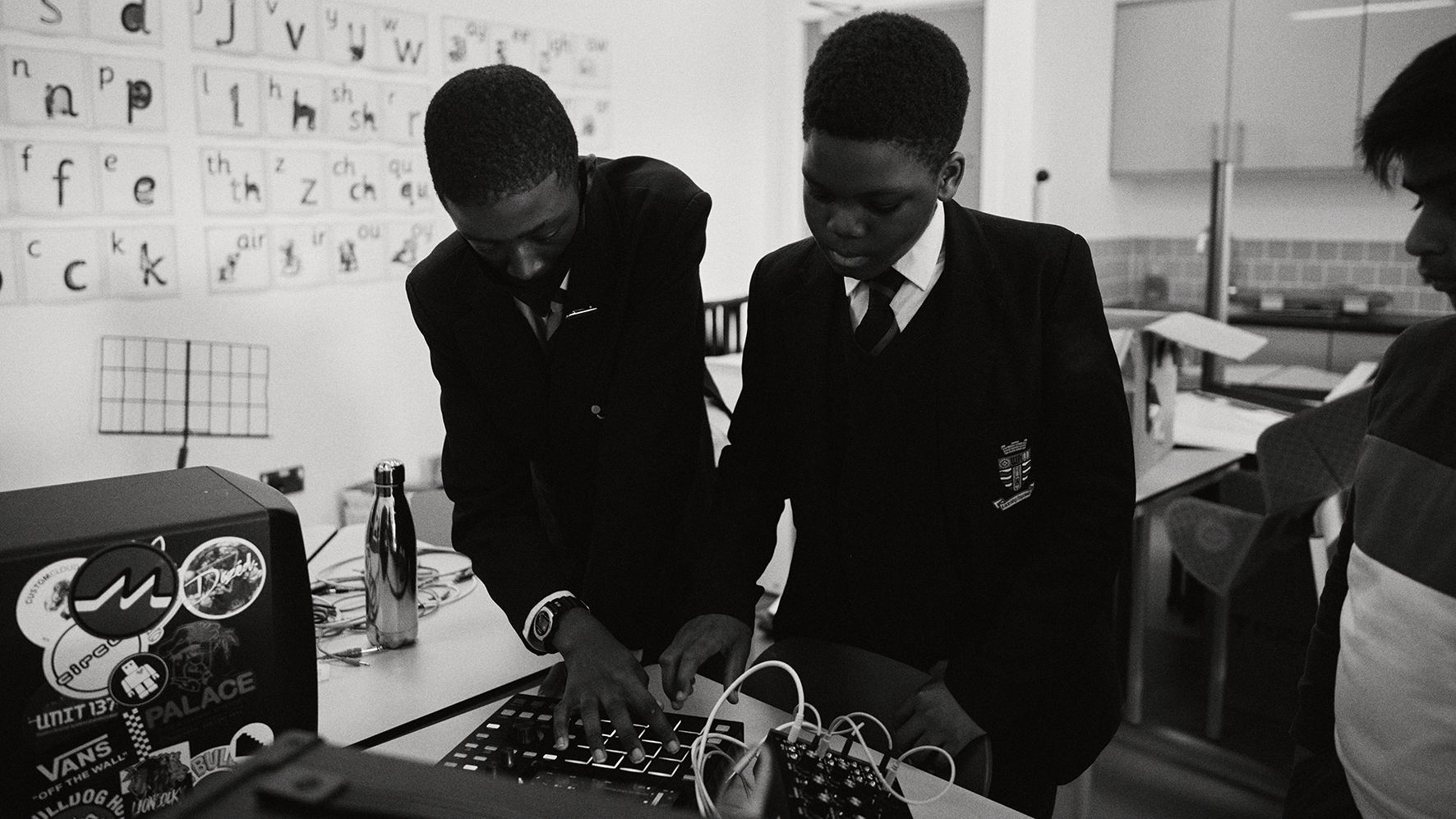


William Stokes is a writer and musician in avant-psych trio Voka Gentle. He has written on music and music technology for MusicRadar, The Guardian, Financial Times, MOJO and more.
“Do you dare to ditch those ‘normal’ beats in favour of hands-on tweaking and extreme sounds? Of course, you do”: Sonicware CyDrums review
“Excels at unique modulated timbres, atonal drones and microtonal sequences that reinvent themselves each time you dare to touch the synth”: Soma Laboratories Lyra-4 review









